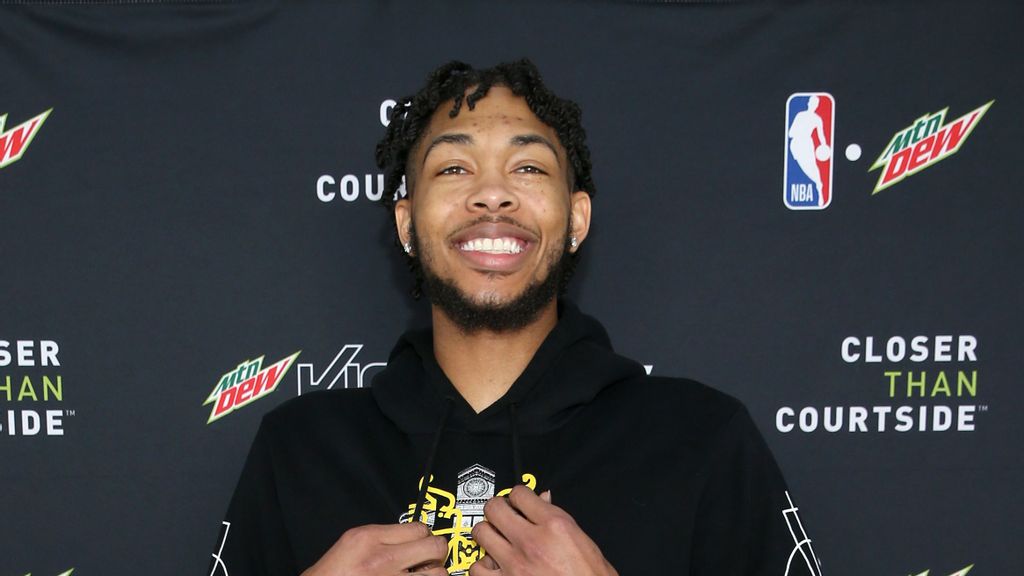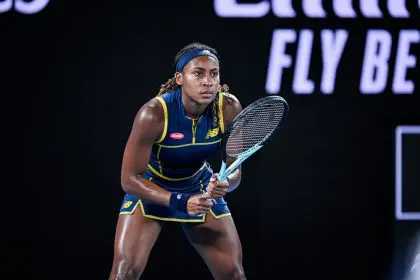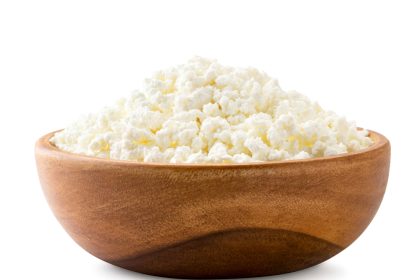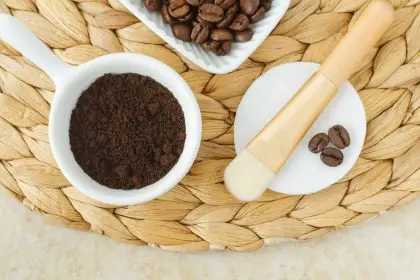
By Jackson Frank
By and large, Brandon Ingram’s steadfast approach to NBA basketball was wildly successful. Over the last two years alone, he’d garnered an All-Star berth, a Most Improved Player of the Year trophy and a five-year, $158 million contract extension.
Expecting or asking him to change was probably futile, and for good reason. He didn’t need to change. He was already excellent, a borderline star before the age of 25.
Despite that excellence, though, he was leaving opportunities on the table — missed passing reads, failed defensive rotations, stalled scoring chances — given his marvelous intersection of skill and physical tools.
… Until he wasn’t, and started taking advantage of them. Until he drastically revolutionized himself on both ends to ignite the best season of his career.
The outcome? Leading the New Orleans Pelicans from the cellar of the Western Conference following a 3-16 start to Play-In Tournament contention at 23-35 (20-19 since that early stretch), all without superstar Zion Willamson.
Ingram has been at the heart of it. He’s incrementally altered various facets of his game — passing, defense and scoring tendencies — to maximize everything he provides, playing like a man with many more All-Star appearances ahead.
In 27 games since Dec. 3, he has an assist rate of 27.9% (96th percentile among forwards, according to Cleaning The Glass) and a turnover rate of 9.9% (59th percentile), both of which would be career-bests across an entire season. Throughout his first 17 games, those marks were 22.1% and 14.0% respectively.
Rarely do established players, even those south of 25 years old, enjoy the type of in-season leap Ingram is having. His processing, accuracy and floor vision as a passer have transformed from clear drawbacks to superlatives of his skill set. Once components that could bog down the offense, they’re currently crucial to spearheading and amplifying many of New Orleans’ fruitful possessions.
He’s become increasingly adept at manipulating opponents with his eyes, quicker at making necessary reads when they’re presented, and is leveraging his 6-foot-8 frame and 7-foot-3 wingspan to frequent passing windows that most ball-handlers cannot. If an opening doesn’t initially arise, he’s patient and waits for something profitable to originate. The way he interacts with help defenders is radically improved.
Whereas passing once felt like a secondary option among his internal-creation hierarchy, it’s now on (or close to) equal footing with his scoring. Passing has always been something he could do, but wasn’t always on his mind to do.
That’s no longer the case. He’s simply identifying opportunities with more haste and regularity, thanks in part to considering those opportunities more often.
He’s rifling live-dribble dimes for layups, is accentuating Jaxson Hayes’ recent breakout and looks unbothered by swarms of defensive attention. There aren’t many better wing-sized facilitators than him.
While Ingram’s passing rise has been percolating for months, the scoring upswing required longer to follow suit. At times, his approach appeared as though he was still fighting against old habits, determined to reach his spots on the floor without an effective blueprint to do so. The result would be possessions plagued by tunnel vision and punctuated by ill-advised jumpers.
But recently, he’s translated the valuable patience, refined decision-making and accelerated processing to his individual scoring. A shift in how he’s deployed within the Pelicans’ offense has amplified his talents, too.
There’s greater emphasis to carve out space for his touches and get him the ball on the move. Whether it’s dribble handoffs, pindowns, flex screens or cross-screens, he’s catching the ball in familiar areas on the floor with a head of steam more routinely.
In turn, he’s discovering his groove as a scorer. Over the last 15 games, he’s averaging 22.4 points on 57.2% True Shooting. Prior to that, he averaged 22.2 points on 52.9% TS this season (29 games).
When he proceeds promptly upon receiving a pass and ensures his physical tools can maintain or expand an advantage, he’s pretty damn tough to stymie. That’s been his signature during this stretch: quick — not hurried — decisions that spark quality looks in spots he’s comfortable.
He’s cooking, and has powered New Orleans to a 9-6 record when he plays, featuring four wins over current top-seven seeds or better.
Although not entirely paralleled by his scoring renaissance, he’s also streamlining some highly impressive defensive consistency, particularly off the ball. Inklings of such a development, largely based on heightened awareness in help situations, peeked through earlier this season. But they were never substantial or commonplace enough to firmly declare he was a different caliber of defender.
The past five weeks are proving otherwise.
He’s far more attentive as a low man on the interior and is weaponizing his rangy wingspan to grander depths. His decision-making and overall performance suggest he’s finally understanding the degree to which he can influence possessions with his rare blend of length, height and mobility. Active hands are the norm, and he’s wreaking some serious havoc away from the ball.
Navigating screens remains a glaring weakness, and he’s not a trustworthy on-ball stopper in most situations. Yet, he is absolutely a better defender compared to the end of last season, start of this season or even two months ago. He’s been pretty dang good for, like, five weeks.
His limbs are swirling; the body is moving. He’s establishing a new, rosier baseline of expectations for his defense each night.
Dating back to a Jan. 11 victory over the Minnesota Timberwolves (13 games), Ingram is posting block and steal rates of 1.4% (80th percentile) and 1.0% (38th percentile), according to Cleaning The Glass.
He’s tallied at least one block or steal in 11 of those games over that time period, a feat he accomplished in just 17 of his first 31 games. Before this run, he was logging block and steal rates of 0.5% and 0.7% percent (25th and 8th percentiles) respectively. That’s a pretty meaningful jump in a sample composing nearly 30% of his games this year!
Through five seasons, Ingram had not played for a team with a record above .500; thus far this campaign, that trend has continued. It’s not to say he couldn’t positively affect winning or he was some “empty calories” player (sidenote: I really dislike the lack of nuance and general idea in this second term). He wasn’t either of those labels. Rather, he functioned as someone best equipped to amplify winning in a specific role designed to mask his flaws and spotlight his strengths.
The latest version of Ingram’s game can drive winning. That’s an arduous adjustment for anyone to complete, and an admirable one for anyone to embrace — especially a guy of his ability whose previous approach yielded considerable success.
In Monday’s blowout win over the Toronto Raptors, Ingram was the best player on the floor, despite only scoring 10 points and taking 7 shots. Four different Pelicans matched or exceeded his field goal attempts. With 8 dimes (2 turnovers), he calmly picked apart the Raptors’ rangy, zealous defense and posed issues amid their own offensive pursuits.
He controlled and dominated the game independent of individual scoring, something he would’ve struggled mightily to do in past years. This is a different Brandon Ingram though. Monday was emblematic of how far he’s come and why it’s so worthwhile.
He’s discovered the seemingly optimal version of himself, and everyone involved is benefitting.
Looking to go to the hottest concerts, sports, theater & family shows near you? Get 100% guaranteed tickets to more than 125,000 live events from TicketSmarter, the official ticket marketplace of BasketballNews.com. Order online now!
Produced in association with BasketballNews.com.
Recommended from our partners
The post Brandon Ingram Is Evolving And Finding The Optimal Version Of His Game appeared first on Zenger News.










